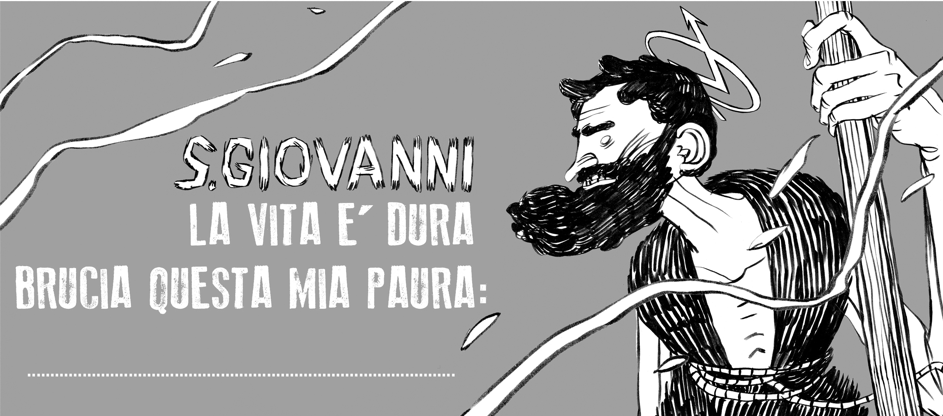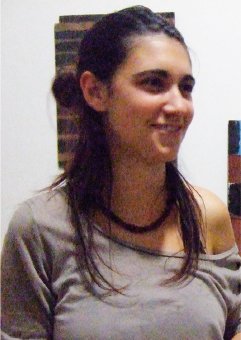
The Parade from the City Below, or the renaissance of the Popular Celebration
The parade from the city below is born from the need of the collectif to give voice to an alternative vision of the world.
It is a choral parenthesis that brings together subjects and individuals who, throughout the year, address different themes with different practices, but who, on this day, express the same need for joyful subversion.
This need is political in the broadest sense of the word; it intends to express itself on the great questions concerning human life, freedom of movement, the right to live and desire, the possibility of imagining a freer and fairer society rooted in humanistic and non-economic values.
A feast day for the city, St. John's Day, the patron saint of the city, was chosen spontaneously, so that the protest of today's society intersects with an institutionally festive moment and exploits its tradition and ritual.
This offers the possibility of expressing oneself in a new language, free from the rhetoric of everyday life, which sometimes empties of meaning the struggles that we live, in spite of ourselves.
It is also the occasion to ritualize our commitment and to give to the social and political activism an additional tool, that of the laughter, and the transforming and liberating power of the popular festival.
Laughter as a popular celebration, or carnivalesque.
The aim of the popular festival can also be called carnival spirit, by virtue of the fact that over time the various forms of popular festival have been absorbed, for contingent historical reasons, by the single festival of Carnival, as the space given to this type of event has been gradually reduced. The common element of all the types of festivities that come together in Carnival is the close link with joyful time, with the interruption of the ordinary course of life, dictated by conventions, limits, prohibitions, hierarchies, norms and oppressive structures. Joyous time is therefore the time of renewal, which marks the death of the old and the birth of the new. This happens because the central element of such a moment is laughter, the only force capable of overcoming the seriousness of official culture.
All eras and all forms of power have needed, in order to maintain themselves, to enclose the people in dictates, rules and prohibitions, in order to escape the danger of change. The tool that regimes have always used to achieve this is fear, fright, repression, the expression of structures such as the State, the Church, etc. etc.
Today and tomorrow, active cooperation and Metamorphosis to come.
In view of a fruitful exchange between the parade of the city below and this artivism project, this year's puppet will be a combination of different contributions.
We hope that the structure will be burned this year, the form of which will be decided by listening to the suggestions of this workshop and others, to be made collectively. Therefore, we hope that during this meeting, all the inequities that have chilled our year or that darken our future will be put on paper.
All contributions collected at this conference, and in other workshops that will take place between now and June, will become part of the fetish to be burned.
The works may differ in terms of technique and content, the only desire being that they not only point the finger at the moon but the moon itself, that they attack repressive institutions but suggest the hidden beauty of our cities and societies, that they denounce evil but try to convey the too often stifled strength of our hearts.
We hope that this year the fears to be burned will be as shared as possible, and that our desire for change will break down the material and ideological barriers that have made humanity suffer so much in recent years.
In addition, we have brought you sacred cards to burn in the bonfire, so that each of us can deliver our fears, anonymously.
We will throw them into the fire for you!

ERC Artivism
This workshop is part of the broader activities related to the ERC project ERC ARTIVISM. Art and Activitism. Creativity and Performance as Creative means of Expression in Super-Diverse Cities lead by Prof. Monika Salzbrunn, namely the final conference Artivism and Creative Resistances: New Research Methods and New Alliances between Art and Activism (12.-14.4.22). The ERC ARTIVISM Project (www.erc-artivism.ch) has received funding from the European Research Council (ERC) within the framework of the European Union’s research and innovation programme “Horizon 2020” (ARTIVISM - grant agreement No. 681880). Dr. Raphaela von Weichs is senior researcher and Federica Moretti and Sara Wiederkehr are PhD students within the project.
